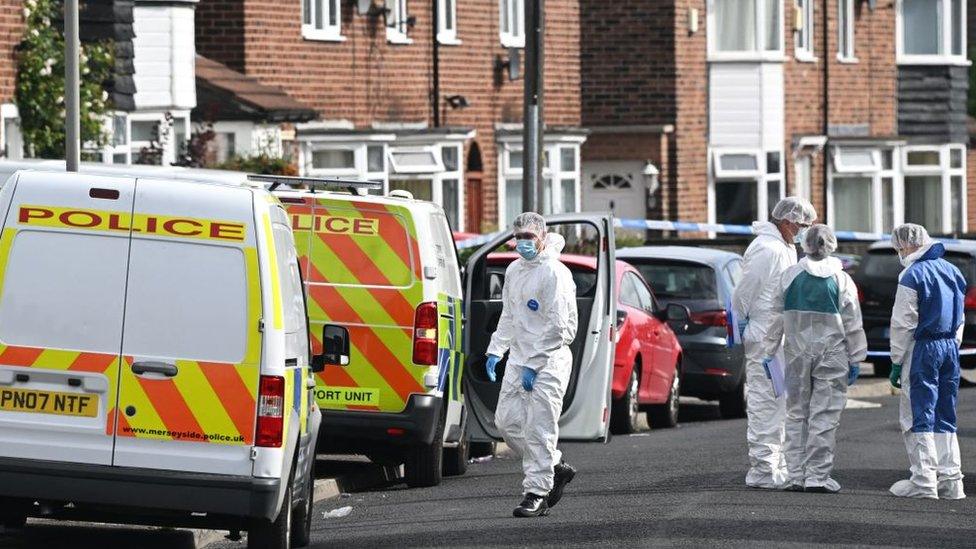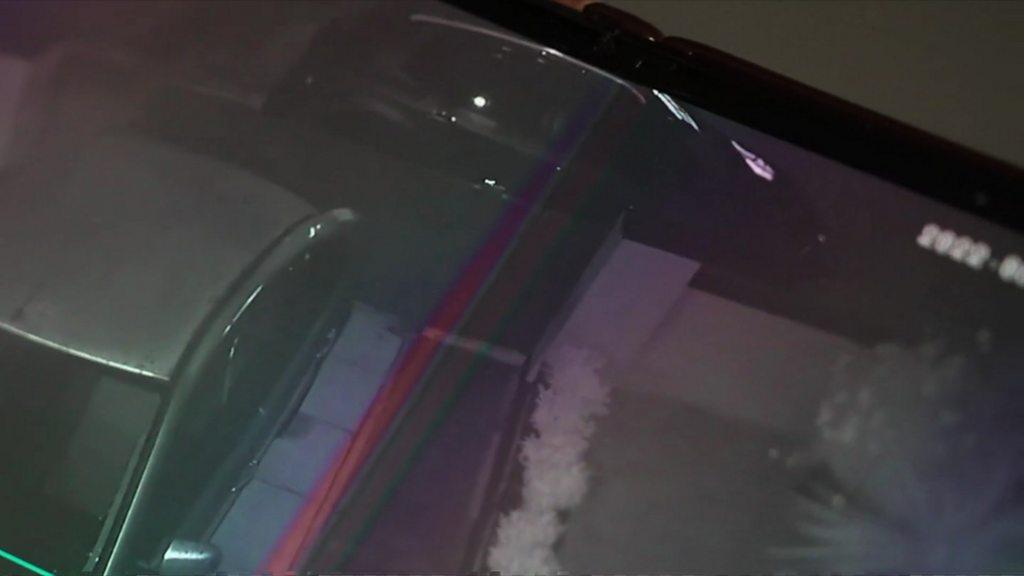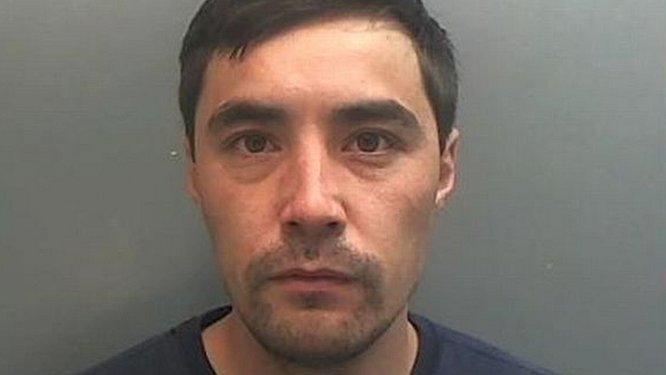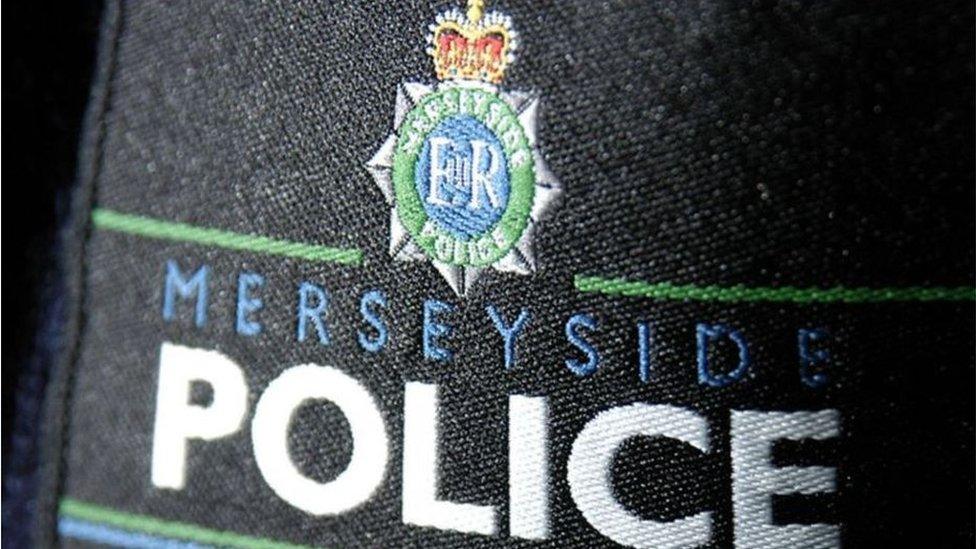Liverpool shootings: Are UK gun crimes on the rise again?
- Published

Merseyside's criminal fraternity are being asked to help in the hunt for the killer of Olivia Pratt-Korbel
Is the recent spate of fatal shootings in Merseyside and London a statistical blip, or the end of a period of success in the fight against gun crime?
The horrifying killing of nine-year-old Olivia Pratt-Korbel was the third death involving a gun in or around Liverpool this month.
There were also three deaths in London in July and a fourth in August.
It follows a period where guns appeared to be being kept off the streets and out of the hands of criminals.
A combination of factors including Covid lockdowns, intensive policing, and a breakthrough in the fight against organised crime were thought to be reducing firearms crimes overall.
But there are very early signs that that might be changing, especially in Merseyside - where shots have been fired at houses, vehicles and people.
A review of police statements detail men and women found with injuries in the street or turning up at hospitals with gunshot wounds.
They were the lucky ones.
On the night of 16 August, 20-year-old Sam Rimmer was shot dead in a cul-de-sac in Dingle, close to the banks of the Mersey, as he walked with a group of friends.
Police have said his alleged attackers were two men who fired from motorbikes before riding off. Three men were arrested on Wednesday.
Then in the early hours of Sunday morning Ashley Dale, 28, was found by officers with gunshot wounds in a garden in the Old Swan neighbourhood of the city.
Police believe she was not the intended victim of the attack and the gunman is still on the run. They are trying to trace a car driven into Leinster Road 10 minutes before the shooting.
Watch: CCTV shows moments before girl, 9, shot dead
Olivia Pratt-Korbel was the third victim on Monday.
There have been nine shooting incidents since April involving someone being injured in areas including Croxteth, Knotty Ash, Old Swan, Toxteth and Woodchurch.
In Merseyside, 16 guns have been seized by police investigating criminal activities this year, with many more handed in as part of Operation Aztec - a firearms surrender programme held every two years.
Gun offences had been increasing since roughly 2015 across England and Wales, according to figures from the Office of National Statistics. But then came the pandemic.
Lockdowns had a huge impact on all of our lives, and patterns of crime, with criminals finding it harder to move around empty streets.
In the year to 31 March 2020 there were 83 shooting incidents reported to Merseyside Police.
As the pandemic clamped down on movement, the number dropped to 42 between April 2020 and March 2021.
This was followed by 39 the next year - which was a 21-year low, according to Labour's police and crime commissioner for Merseyside Emily Spurrell.
Last year, Merseyside Police launched a new specialist team to tackle drugs and firearms.
There have been 27 shootings, or "discharge incidents" in police jargon in just five months since March this year, suggesting the rate is increasing compared to the year before.
Are gun crimes on the rise again?
Dr Robert Hesketh, from the School of Justice Studies at Liverpool John Moores University, thinks the incidents will increase because of the cost of living crisis.
"People are getting desperate and desperate times call for desperate measures," he said.
Dr Hesketh disagreed with senior police officers, who say it is hard for a criminal to buy a gun in Britain.
The academic instead suggested in Liverpool a cheap firearm can be obtained for as little as £150 with a bit of asking around.
Gun crime is closely linked with drug dealing. At the top of the criminal tree drug gangs arrange imports to sell in the UK.
The retail arm of the market has become dominated by a relatively new business model.
County lines gangs, using dedicated mobile phones for customers to make orders, shift drugs around the country and have been blamed for increasing the risk of violence involving guns and knives.
Liverpool is an important part of the UK's drug gang infrastructure.
In spring 2020 there was a breakthrough in the fight against organised crime, following the penetration of the Encrochat encrypted phone network by the French police.
The expensive phones had become a required bit of kit for organised criminals, especially drug dealers, because it allowed them to safely organise their business.
But for two months the cracking of the Encrochat server in France allowed police to read their candid criminal messages, a fraction of a second after they were sent.
This led to more than a thousand arrests across the UK. Many criminals pleaded guilty in the face of the evidence.
This breakthrough for police coincided with the coronavirus pandemic and may have increased the pressure on criminals created by the lockdowns.
However the concern now is that something has changed and a long hot summer of gun crime will continue into the autumn.
Steve Rotheram, Mayor of the Liverpool City Region, said "Liverpool is still one of the safest metropolitan areas in the country. Until last week, we hadn't seen a gun-related death in the city for more than 12 months."
"While this week's events are not representative of the progress we've made, it's clear that we've still got some way to go."
- Published24 August 2022

- Published24 August 2022

- Published18 August 2022
